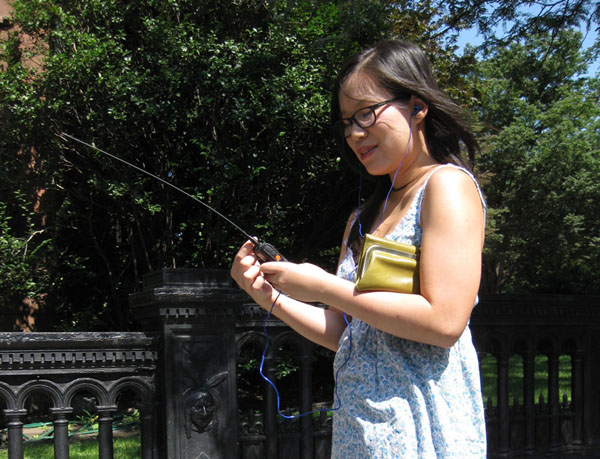
by Laura Hall | Apr 7, 2016 | Uncategorized
You read my last post about why you should become an Amateur Radio Operator (aka: ARO, aka: Ham), right? And you went out and got your license and a handheld radio, right? Great – now it’s time to practice. Portland is full of great opportunities for getting hands-on experience using your radio.
BABY STEPS… PROGRAM AND TALK: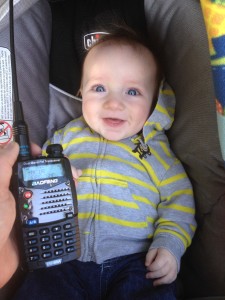
When the Big One hits, you don’t want to be fumbling with your radio and trying to read a list of frequencies. You’ll want to turn your radio on and have immediate access to the frequencies that will be used by other AROs in your area. And you don’t want to be terrified of talking if you have important messages to convey. That means you need to program those frequencies into your radio and practice using the darn thing. It’s especially important to learn when to talk and when not to talk.
It can seem intimidating at first, but once you get past these first few hurdles, you’ll be amazed at how quickly you will become comfortable operating your radio.
PROGRAMMING & OPERATIONS CLASSES:
The Piedmont Neighborhood Emergency Team is hosting two three-hour classes for newly-licensed amateur radio operators and other “hams” who have been out of action for a while or who never quite got activated. I went to one of these trainings recently, and it was fan-tastic. These classes are free, but please pre-register.
- Saturday, May 14, from 1-4pm at the Leaven Community Center, 5431 NE 20th Ave, Portland, 97211. Register here.
- Saturday, June 18, from 9am-12pm at the Leaven Community Center, 5431 NE 20th Ave, Portland, 97211. Register here.
NETS: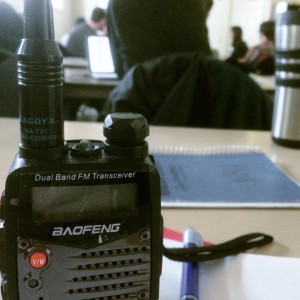
An amateur radio net, or simply ham net, is an “on-the-air” gathering of amateur radio operators. Most nets convene on a regular schedule and specific frequency and are organized for a particular purpose, such as relaying messages, discussing a common topic of interest, communicating in severe weather, coping with emergencies, or simply gathering for conversation. (Wikipedia) — This type of net is not to be confused with Portland NET, the Neighborhood Emergency Team program!
Several Portland area groups do regular ARO Nets each week. Even if you don’t feel ready to talk yet, at least listen in so that you can get comfortable with the way AROs communicate. The following are some Nets you should consider participating in.
NET Net:
The Neighborhood Emergency Team Net (NETnet) is a ham radio on-air gathering that discusses issues of interest to Portland NET members. Their primary audience is those with little or no experience on the air, but they often get check-ins from experienced hams and folks not associated with emergency communication. Anyone can listen, but you do need at least an amateur radio Technician License to transmit.
If you are a NET ARO, prospective NET ARO, or a Ham interested in emergency communication, the NETnet is a wonderful resource. Roughly 40 Hams are checking in to this net each week.
- WHEN: Sundays at 8pm
- VHF: 147.040 aka MC-6 (West Hills) or 147.320 (Saddle Mountain) or 147.380 (Cedar Mills) — use +600 kHz offset, PL tone 100.0
- UHF: 442.225 (West Hills) or 442.325 (Saddle Mountain) — use +5 MHz offset, PL tone 100.0
NETnet organizers are looking for feedback and suggestions on how to make the NETnet an even more effective training venue than it already is. Please click here to complete a short online survey.
PARC Net:
The Portland Amateur Radio Club (PARC) is a great resource for AROs in the Portland area. They have monthly in-person meetings, as well as a weekly on-air net.
- WHEN: Mondays at 7pm PT on 146.84
MC-ARES Net:
The Multnomah County Amateur Radio Emergency Service (MC-ARES) is a field organization of the American Radio Relay League (ARRL). Members are active in community service. They also have monthly in-person meetings, as well as a weekly on-air net.
- WHEN: Wednesdays at 7pm PT on the 146.84 repeater
NTTN Net:
The Northwest Oregon Traffic and Training NET (NTTN) is handles formal written traffic into and out of the state of Oregon.
- WHEN: Daily at 18:05 (6:05 pm) PT on 146.80 Repeater with 07.2 Hz PL tone
MEET YOU ON THE NETS!
Joining in on a Net can be intimidating, but AROs are a welcoming and forgiving group. This is the best way to learn to use your radio so that you’ll be effective in an emergency situation. I hope to meet you on a Net sometime soon!
–Laura Hall, Arbor Lodge / Kenton NET Assistant Team Leader, arborlodgeprepares@gmail.com
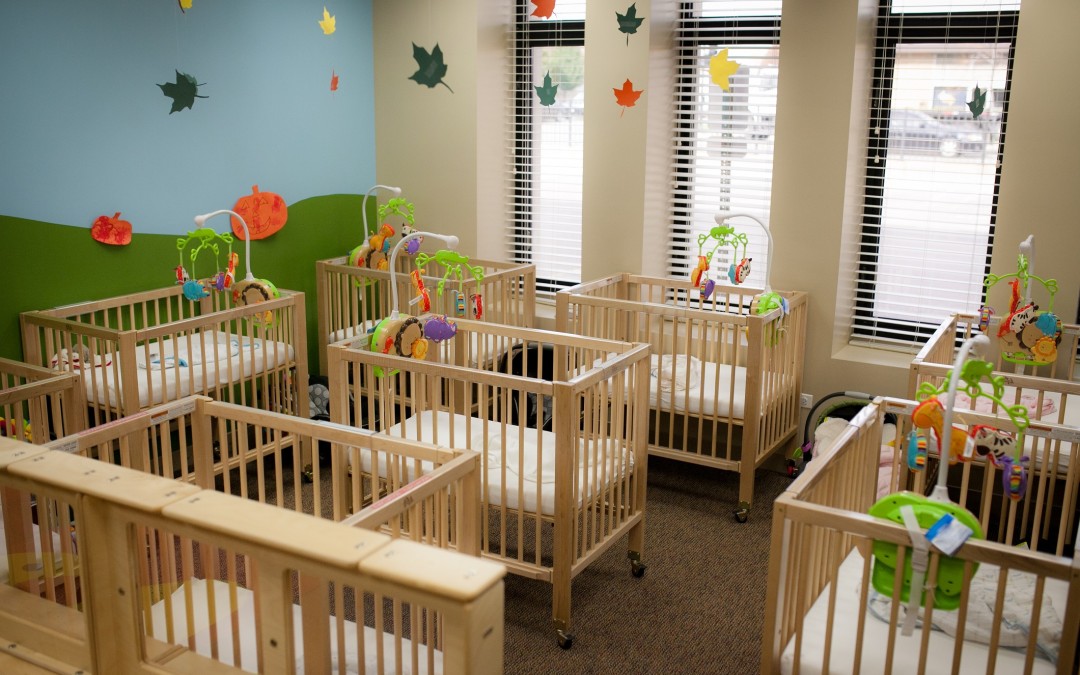
by Laura Hall | Feb 27, 2016 | Uncategorized
I became interested in emergency preparedness when I was pregnant with my first child. I could handle my own mortality, but my child’s? No way. These days I think about all children, not just my own. Lately I’ve been asking childcare providers in my community what they’re doing to prepare for an earthquake. Read on to see what a few of them have told me. If you have concerns about your child’s facility not being prepared, consider sharing this info with them.
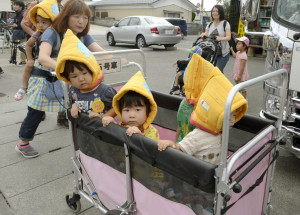 PHYSICAL PREPARATION
PHYSICAL PREPARATION
- Consider having your facility retrofitted, and make sure water heaters are strapped to the wall.
- Secure top-heavy furniture with brackets or straps, cabinet doors with latches, and smaller items that could fall with museum putty.
- Make sure all staff know how to shut off electricity, gas, and water. Make sure staff are aware if there is an asbestos situations that would necessitate evacuation.
- Have all of the same preparedness supplies as a regular home, plus food/water reserves to last several days or weeks for all children and staff. Visit the Portland Bureau of Emergency Management’s Preparedness Resources page for detailed information about how to make plans and build kits.
- Have provisions for sheltering in place outside the facility (back yard), in a hazard-free area nearby (park, etc.), and a location further afield (if a toxic situation arises near the facility).
- Have parents prepare a “comfort kit” for their child, and add a space blanket, poncho, and dust mask to each one.
COMMUNICATION
- Conduct drills frequently. Make sure everyone knows the drill: drop, cover, hold. Identify a safe gathering space outside for after the shaking stops.
- Communicate with families several times a year about this issue. Make it clear to them that you will do your best to care for children until they can arrive, but they should have backup plans in place for someone else to pick up their children in case they are unable to get to the facility.
- Have hard copies of all parent information, including work address and emergency medical forms, ready to go with you once the shaking has stopped. Have an out-of-state (non-West coast) contact number for you and families to use as a point of contact for updates, as local numbers will not go through.
- Encourage families to discuss earthquake safety at home and prepare their own kits.
- Be prepared to deal with the children’s emotions after an earthquake. They will be scared and need lots of reassuring. Use physical reassurance (hugs), and make sure they understand that you will take care of them until their parents arrive.
- Keep in touch with your local Neighborhood Emergency Team so that you know what they’re planning, and consider Other Ways to Prepare.
TRAINING
- Consider getting NET training for you and your staff. NET volunteers know how to do light search and rescue, basic disaster medicine and triage, radio communications, fire suppression, disaster psychology, and trauma intervention.
For a more in-depth look at childcare facility preparedness, read Multnomah County’s Child Care Center Crisis / Disaster Response Handbook. This is an excellent tool that covers most of what a facility would need to be prepared.
–Laura Hall, Arbor Lodge / Kenton NET Assistant Team Leader, arborlodgeprepares@gmail.com
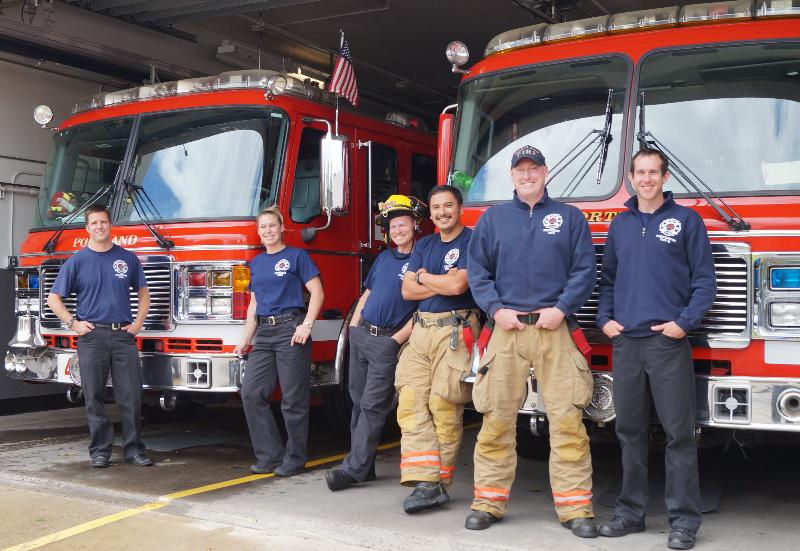
by Laura Hall | Feb 4, 2016 | Uncategorized
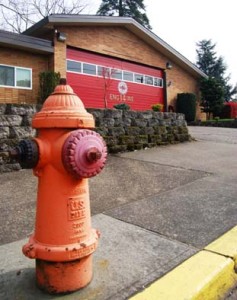 I visited my local fire station a few years ago to talk with the station crew about earthquake preparedness and how our Neighborhood Emergency Team can help fire & rescue operations in the event of an earthquake. Here’s what the station captain told me:
I visited my local fire station a few years ago to talk with the station crew about earthquake preparedness and how our Neighborhood Emergency Team can help fire & rescue operations in the event of an earthquake. Here’s what the station captain told me:
HOW WE CAN HELP RESCUE OPERATIONS
BEFORE AN EARTHQUAKE HITS:
- Identify all local water sources (swimming pools, rivers, streams, etc). Station crew will report to the station they are nearest at the time the earthquake hits, so you may be dealing with someone who doesn’t know the area. They’ll benefit from your knowledge of the area.
- Practice using FEMA Incident Command Structure (ICS) forms. Documentation of what’s happening, who needs help, hazards, resources, etc. is vital for emergency workers who need to understand the situation quickly.
- Practice wound care and triage.
AFTER AN EARTHQUAKE HITS:
- Prioritize getting utilities shut off in all homes and businesses.
- Recreate street signs – this will also help FEMA workers unfamiliar with the area.
- Clear a 100 x 100 foot area for a helicopter landing zone.
- Prepare colored tarps for triage. Tape is fine, but if we can arrange people in large areas that are clearly identified, emergency workers can more quickly identify who needs help.
- Document, document, document. Use those ICS forms!
- Look for shifting buildings, communicate / call out to each other, and be safe.
- Think. Plan. Act. – Don’t become paralyzed with indecision. It’s better to do something rather than nothing, even if it’s not the absolute best action to take. Nothing will be perfect.
- Use a commanding presence. As a person in charge of directing people in various emotional states, it’s important that you present yourself as a person of calm authority. And as a team you will command strength in your numbers, so people will respect you.
I encourage all NETs and community members to get to know your local fire station staff. They’re an invaluable resource in our preparation efforts. If you’ve visited your local station and gained additional advice, please email me to let me know. I’ll share your knowledge here on this blog!
–Laura Hall, Arbor Lodge / Kenton NET Assistant Team Leader, arborlodgeprepares@gmail.com







